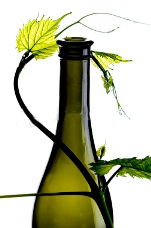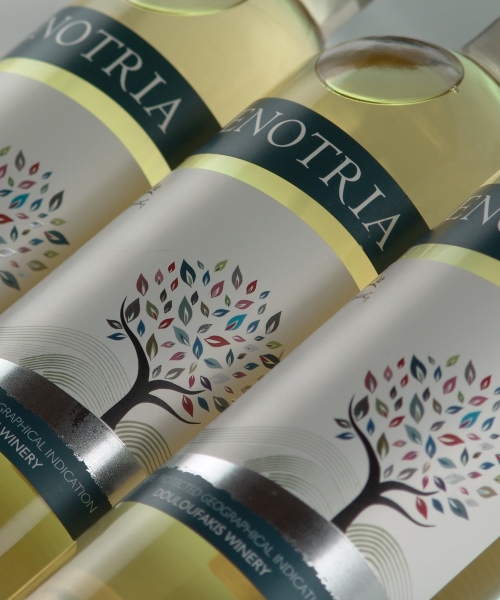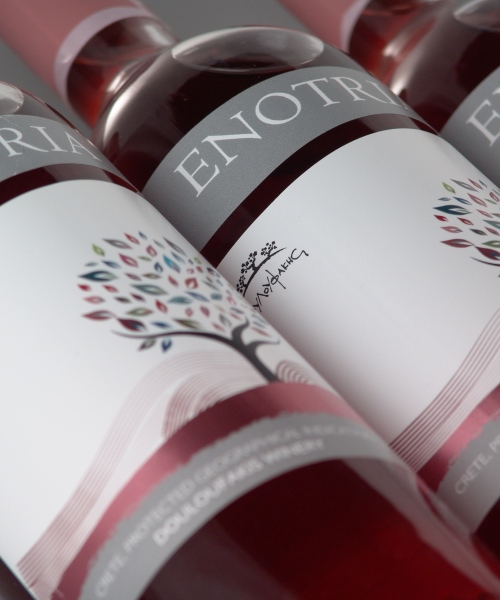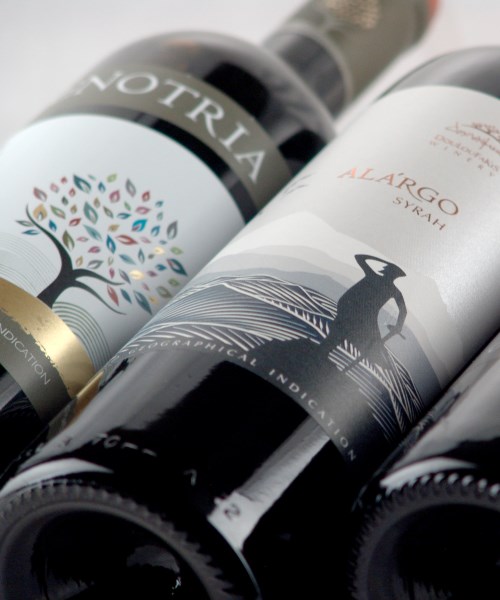The types of wine are determined by some criteria.

Types of Wines
by Colour, Residual Sugar, Carbon Dioxide
The types of wine are determined by the following criteria:
1. The colour
2. Residual sugar
3. Content of carbon dioxide
WINE TYPES
Colour

Greek white wines are produced by the classic white vinification, the main characteristics of which are the absence of extraction and direct separation of must. Apart from classic winemaking, there is the skin contact at low temperatures for several hours, in order to maximize the realize of aromas from the grape skins. White wines are usually well paired with white meat, poultry, seafood and pasta.
See the greek white wines of Douloufakis winery
 Greek rose wines belong to an intermediate category between white and red wines. They come from the same grape varieties as red wines. However, the difference in vinification is that the colour extraction takes just a few hours. Rose wines pair effortlessly with all dishes.
Greek rose wines belong to an intermediate category between white and red wines. They come from the same grape varieties as red wines. However, the difference in vinification is that the colour extraction takes just a few hours. Rose wines pair effortlessly with all dishes.

Colour is one of the most easily recognizable characteristics of wines. For red wines we use red grapes.
Since pigments (anthocyanins) are found in the skin of the grape, not in the juice, the colour of the wine depends on the method of vinification and the time the must remains in contact with those skins. The duration of extraction is the key to the quality of red wine and its characteristics. For the production of wines that will be consumed fresh, extraction is short. Wines for aging need longer extraction.
Greek red wines are usually paired with red meats, grilled or baked, ham, yellow cheese and smoked food.
See the cretan red wines of Douloufakis
RESIDUAL SUGAR
 Greek dry wines, in accordance to the Regulation EC 753/2002, are distinguished by the content of residual sugar which must not exceed the upper limit of 4 gr/lt.
Greek dry wines, in accordance to the Regulation EC 753/2002, are distinguished by the content of residual sugar which must not exceed the upper limit of 4 gr/lt.
See Douloufakis greek dry wines

Greek semi dry wines, in accordance to the Regulation EC 753/2002 are distinguished by their content of residual sugar which must not exceed the upper limit of 12 gr/lt.

Greek semi-sweet wines, in accordance to Regulation EC 753/2002, are distinguished by their content of residual sugar which should not exceed the upper limit of 45 gr/lt.
See the greek semi-sweet wines of Douloufakis winery:
Semi-sweet white wine Semi-sweet red wine.

The greek sweet wines, in accordance to the Regulation EC 753/2002, are distinguished by their content of residual sugar which should not be less than 45 gr/lt.
See Douloufakis naturally sweet wine
CARBON DIOXIDE CONTENT

According to EC Regulation 1493/99, greek still wines do not contain carbon dioxide.
See the greek still wines of Douloufakis

According to EC Regulation 1493/99, a sparkling wine is any greek wine with an excess of 3 atmospheres in pressure due to carbon dioxide at 20°C .
Discover the BRUT sparking wine from Vidiano grape by Douloufakis winery:
Sparkling Douloufakis
 According to EC Regulation 1493/99, semi-sparkling greek wines are defined as those having pressure between 1 and 2.5 atmospheres at 20 °C
According to EC Regulation 1493/99, semi-sparkling greek wines are defined as those having pressure between 1 and 2.5 atmospheres at 20 °C DE
DE  RU
RU  EL
EL  EN
EN 


